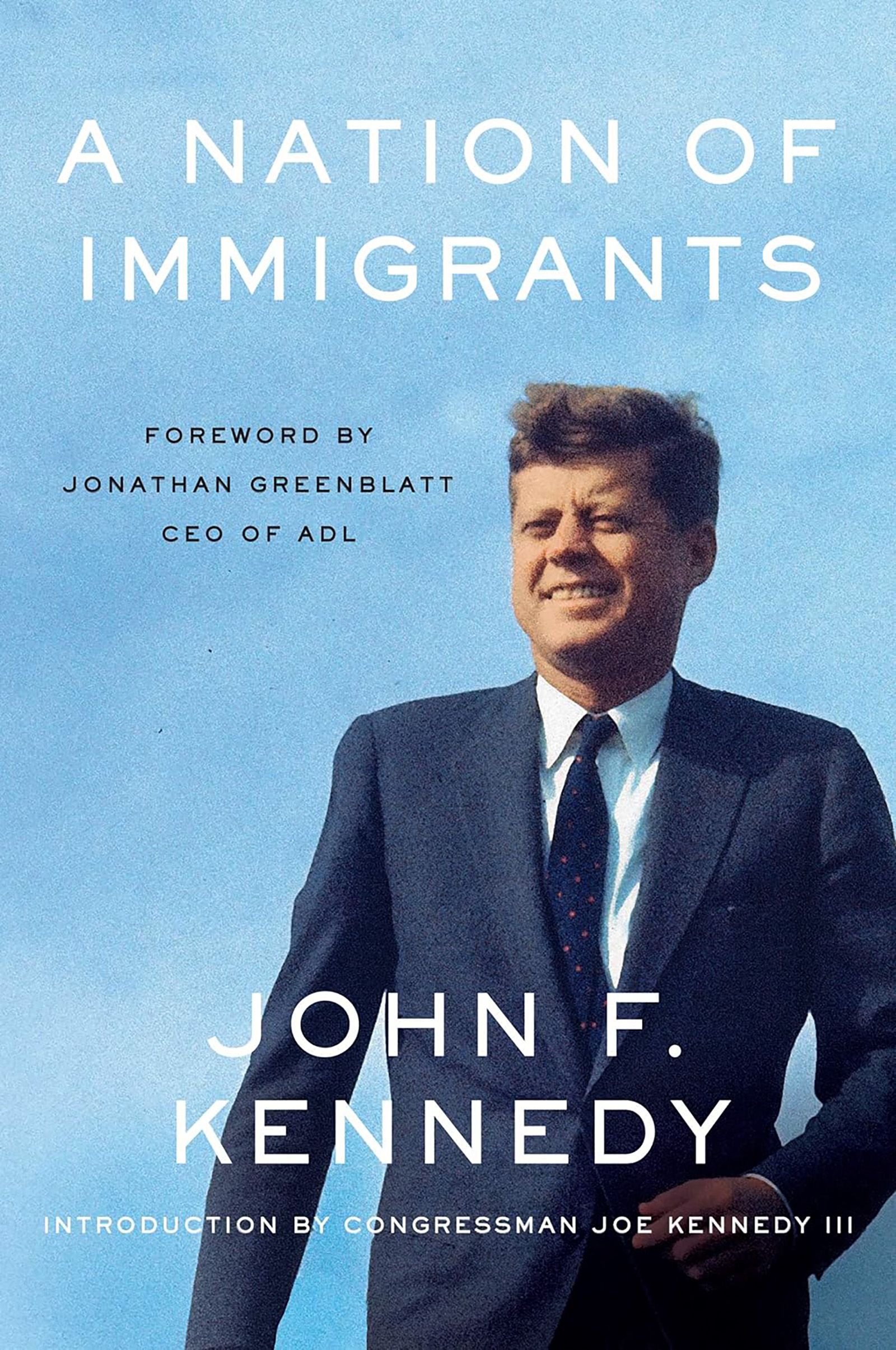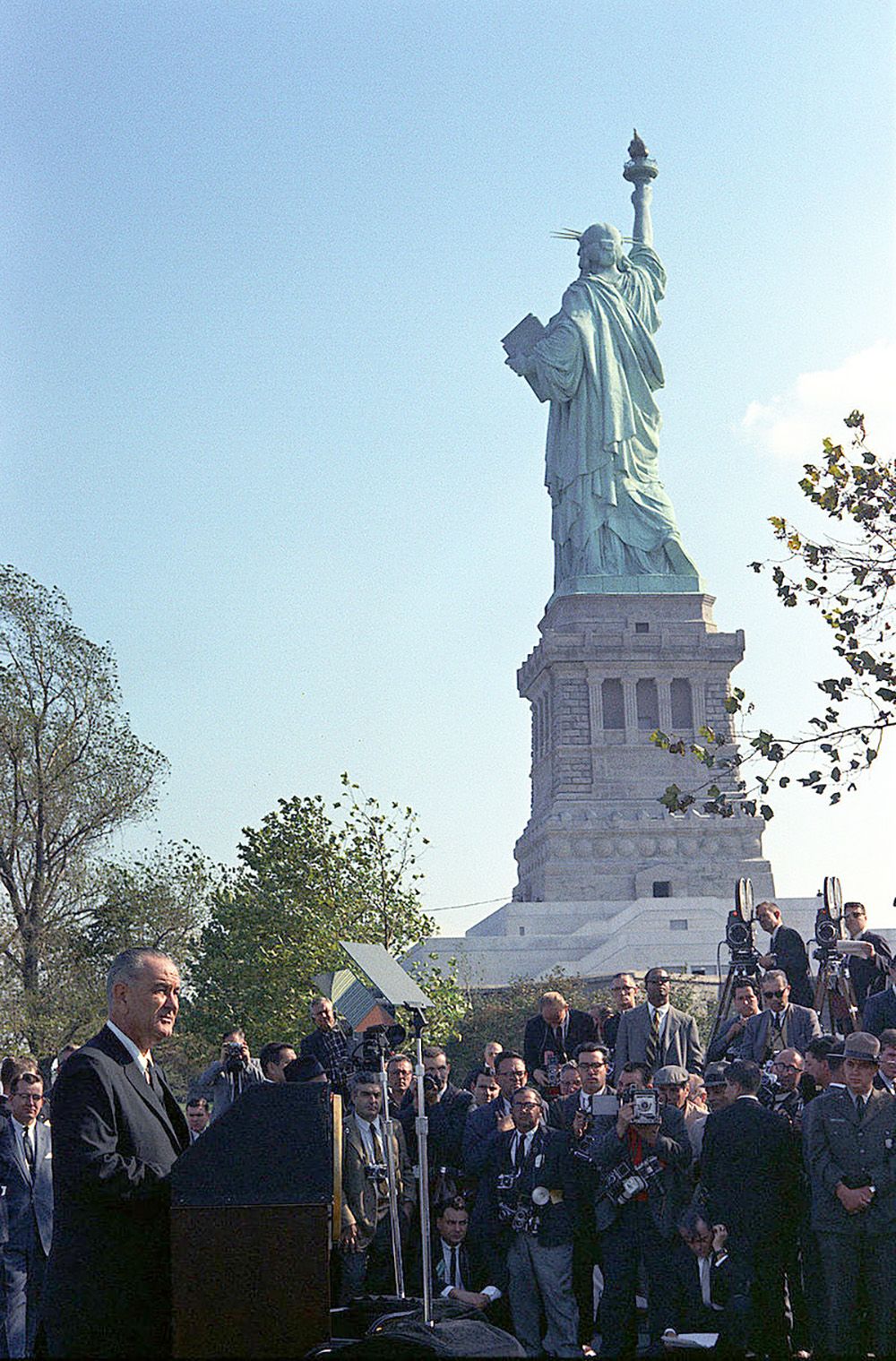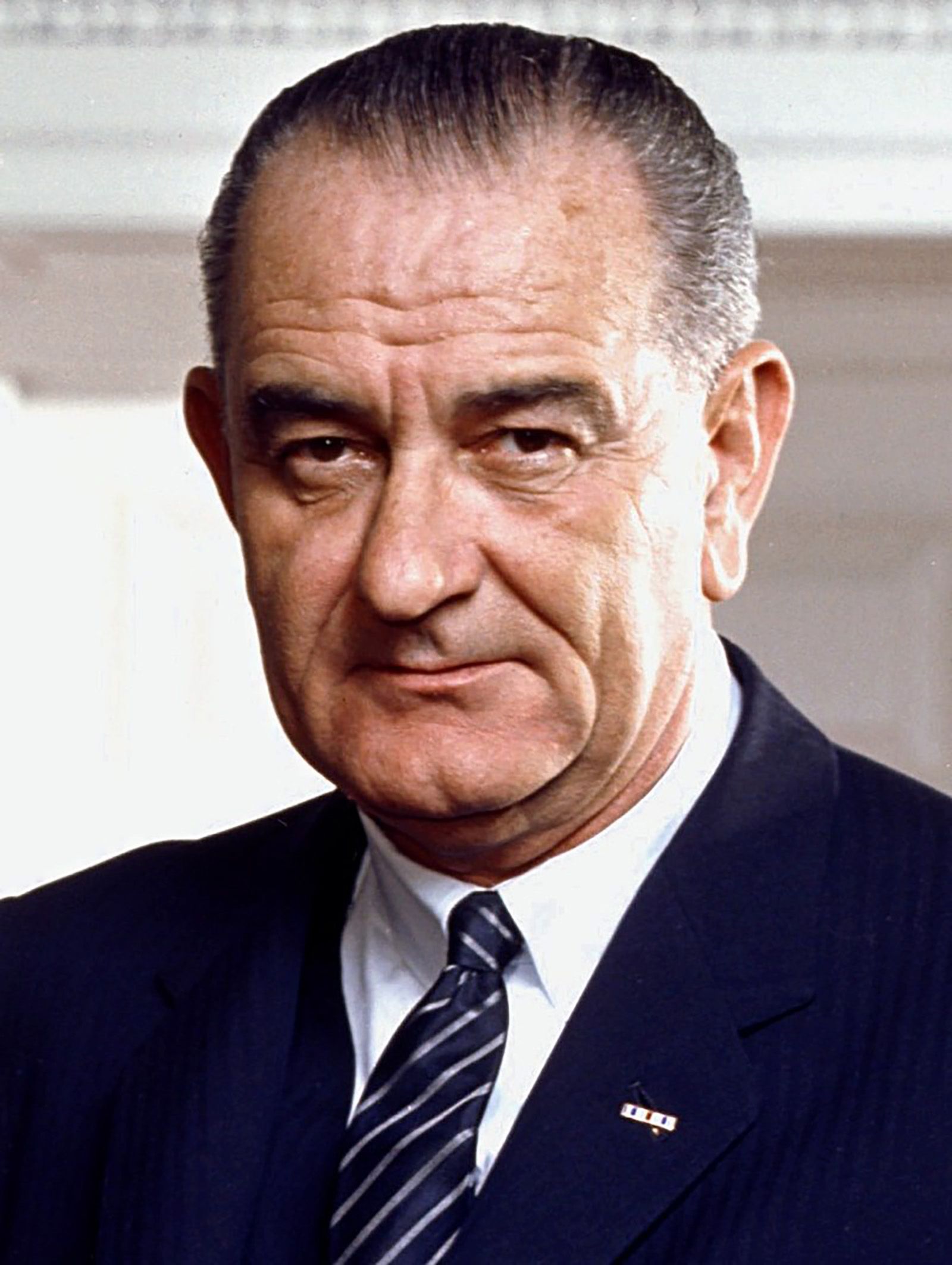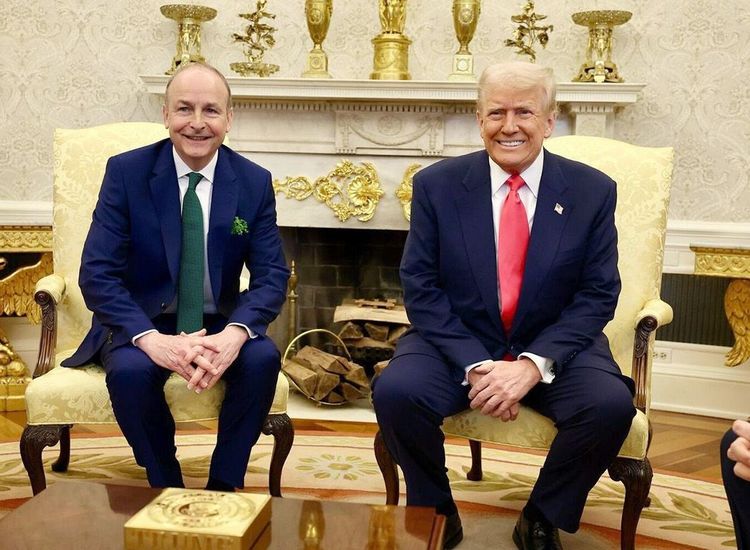Back in the spring of 2021 I was feeling nervous. Not about Covid, or at least not entirely.
And it wasn’t nerves over the publishing of my book, “Unintended Consequences: The Story Of Irish Immigration To The U.S. And How America’s Door Was Closed To The Irish.” No, that was in the bag. The work was done and the publisher, Merrion Press, was guiding the tome into the shelves, physical and electronic.
No, the nerves were caused by Congress.
The book covered the entire story of Irish immigration to America, but most especially the decades since the 1965 Immigration and Nationality Act, a piece of legislation that attentive Americans were told would change little or nothing but would ultimately change much and everything.
What if Congress, on the day of publication, or the next day, or the following week, decided to grasp the nettle on immigration and pass comprehensive reform? Instead of my book being an account of long ago history, recent history and present day circumstances, it would suddenly be a work in need of serious updating.

I need not have worried. More than three years have passed since the publication of “UC” and Congress has done nothing, zilch, nada. The book could just as easily be published now, in the fifth month of 2024. The story it tells, in an odd sort of way, is still fresh, current, contemporary. Its centerpiece, politically speaking, was a gathering on Liberty Island in New York Harbor on October 3, 1965.
On that day the great and the good clustered around President Lyndon Johnson as he signed the ’65 act into law And here is what LBJ said in his speech on that long ago fall day.
“Mr. Vice President, Mr. Speaker, Mr. Ambassador Goldberg, distinguished Members of the leadership of the Congress, distinguished Governors and mayors, my fellow countrymen: “We have called the Congress here this afternoon not only to mark a very historic occasion, but to settle a very old issue that is in dispute.
That issue is, to what congressional district does Liberty Island really belong--Congressman Farbstein or Congressman Gallagher? It will be settled by whoever of the two can walk first to the top of the Statue of Liberty. “This bill that we will sign today is not a revolutionary bill. It does not affect the lives of millions. It will not reshape the structure of our daily lives, or really add importantly to either our wealth or our power. “Yet it is still one of the most important acts of this Congress and of this administration.
President Lyndon Johnson signing the 1965 Immigration and Nationality Act into law.
“For it does repair a very deep and painful flaw in the fabric of American justice. It corrects a cruel and enduring wrong in the conduct of the American nation. “Speaker McCormack and Congressman Celler almost 40 years ago first pointed that out in their maiden speeches in the Congress.
And this measure that we will sign today will really make us truer to ourselves both as a country and as a people. It will strengthen us in a hundred unseen ways.
“I have come here to thank personally each member of the Congress who labored so long and so valiantly to make this occasion come true today, and to make this bill a reality. I cannot mention all their names, for it would take much too long, but my gratitude-and that of this nation--belongs to the 89th Congress.
“We are indebted, too, to the vision of the late beloved President John Fitzgerald Kennedy, and to the support given to this measure by the then Attorney General and now Senator, Robert F. Kennedy.
“In the final days of consideration, this bill had no more able champion than the present Attorney General, Nicholas Katzenbach, who, with New York's own "Manny" Celler, and Senator Ted Kennedy of Massachusetts, and Congressman Feighan of Ohio, and Senator Mansfield and Senator Dirksen constituting the leadership of the Senate, and Senator Javits, helped to guide this bill to passage, along with the help of the Members sitting in front of me today.

“This bill says simply that from this day forth those wishing to immigrate to America shall be admitted on the basis of their skills and their close relationship to those already here. “This is a simple test, and it is a fair test.
Those who can contribute most to this country--to its growth, to its strength, to its spirit--will be the first that are admitted to this land. “The fairness of this standard is so self-evident that we may well wonder that it has not always been applied.
Yet the fact is that for over four decades the immigration policy of the United States has been twisted and has been distorted by the harsh injustice of the national origins quota system. “Under that system the ability of new immigrants to come to America depended upon the country of their birth. Only three countries were allowed to supply 70 percent of all the immigrants.
“Families were kept apart because a husband or a wife or a child had been born in the wrong place. “Men of needed skill and talent were denied entrance because they came from southern or eastern Europe or from one of the developing continents.
“This system violated the basic principle of American democracy--the principle that values and rewards each man on the basis of his merit as a man. “It has been un-American in the highest sense, because it has been untrue to the faith that brought thousands to these shores even before we were a country. Continues on next page “Today, with my signature, this system is abolished.
President Johnson delivering his speech on Liberty Island.
“We can now believe that it will never again shadow the gate to the American nation with the twin barriers of prejudice and privilege.
“Our beautiful America was built by a nation of strangers. From a hundred different places or more they have poured forth into an empty land, joining and blending in one mighty and irresistible tide. “The land flourished because it was fed from so many sources--because it was nourished by so many cultures and traditions and peoples.
“And from this experience, almost unique in the history of nations, has come America's attitude toward the rest of the world. We, because of what we are, feel safer and stronger in a world as varied as the people who make it up--a world where no country rules another and all countries can deal with the basic problems of human dignity and deal with those problems in their own way.
“Now, under the monument which has welcomed so many to our shores, the American nation returns to the finest of its traditions today. “The days of unlimited immigration are past.
“But those who do come will come because of what they are, and not because of the land from which they sprung.
“When the earliest settlers poured into a wild continent there was no one to ask them where they came from. The only question was: Were they sturdy enough to make the journey, were they strong enough to clear the land, were they enduring enough to make a home for freedom, and were they brave enough to die for liberty if it became necessary to do so?
“And so it has been through all the great and testing moments of American history. Our history this year we see in VietNam. Men there are dying--men named Fernandez and Zajac and Zelinko and Mariano and McCormick.
“Neither the enemy who killed them nor the people whose independence they have fought to save ever asked them where they or their parents came from. They were all Americans. It was for free men and for America that they gave their all, they gave their lives and selves.
“By eliminating that same question as a test for immigration the Congress proves ourselves worthy of those men and worthy of our own traditions as a Nation.
“So it is in that spirit that I declare this afternoon to the people of Cuba that those who seek refuge here in America will find it. The dedication of America to our traditions as an asylum for the oppressed is going to be upheld.
“I have directed the Departments of State and Justice and Health, Education, and Welfare to immediately make all the necessary arrangements to permit those in Cuba who seek freedom to make an orderly entry into the United States of America.
“Our first concern will be with those Cubans who have been separated from their children and their parents and their husbands and their wives and that are now in this country. Our next concern is with those who are imprisoned for political reasons.
“And I will send to the Congress tomorrow a request for supplementary funds of $12,600,000 to carry forth the commitment that I am making today.
“I am asking the Department of State to seek through the Swiss Government immediately the agreement of the Cuban Government in a request to the President of the International Red Cross Committee. The request is for the assistance of the committee in processing the movement of refugees from Cuba to Miami. Miami will serve as a port of entry and a temporary stopping place for refugees as they settle in other parts of this country.
“And to all the voluntary agencies in the United States, I appeal for their continuation and expansion of their magnificent work. Their help is needed in the reception and the settlement of those who choose to leave Cuba. The federal government will work closely with these agencies in their tasks of charity and brotherhood.
“I want all the people of this great land of ours to know of the really enormous contribution which the compassionate citizens of Florida have made to humanity and to decency. And all States in this Union can join with Florida now in extending the hand of helpfulness and humanity to our Cuban brothers.
“The lesson of our times is sharp and clear in this movement of people from one land to another. Once again, it stamps the mark of failure on a regime when many of its citizens voluntarily choose to leave the land of their birth for a more hopeful home in America. The future holds little hope for any government where the present holds no hope for the people.
“And so we Americans will welcome these Cuban people. For the tides of history run strong, and in another day they can return to their homeland to find it cleansed of terror and free from fear.
“Over my shoulders here you can see Ellis Island, whose vacant corridors echo today the joyous sound of long ago voices.
“And today we can all believe that the lamp of this grand old lady is brighter today-- and the golden door that she guards gleams more brilliantly in the light of an increased liberty for the people from all the countries of the globe. Thank you very much.”
The moral core of the ’65 stood up to scrutiny. It reflected the dreams and desires for a new kind of immigration that President John F. Kennedy had outlined in his book “A Nation Of Immigrants.”
With a flourish of numerous gift signing pens, LBJ was turning those dreams and desires into reality. Johnson was saying to his audience of several hundred on Liberty Island that the new law was really no big deal. He played it down thus: “This bill that we will sign today is not a revolutionary bill. It does not affect the lives of millions. It will not reshape the structure of our daily lives, or really add importantly to either our wealth or our power.”
Then he played it up: “Yet it is still one of the most important acts of this Congress and of this administration.” Such was politics, and LBJ was nothing if not a consummate politician. But there was another key line, a standalone:
“The days of unlimited immigration are past.” This was the case from LBJ’s perspective, and the view of Congress. But, as we know, many around the world, and not a few in Ireland, would have other ideas in the years that followed. Immigration, migration, call it what you will, is like water in the hand when it comes to the ducks-in-a-row mindset of legislators.
On the Amazon website JFK’s “A Nation Of Immigrants” is described as a “timeless book.” At this rate “Unintended Consequences” will end up matching “ANOI” in the “timeless” category, if not in sales.








